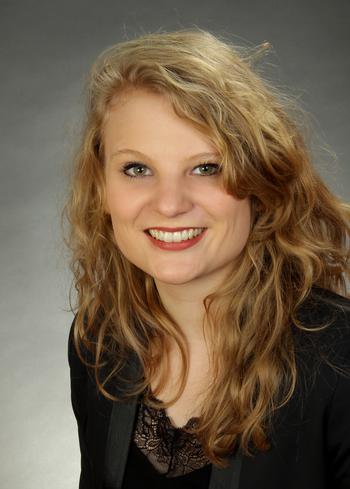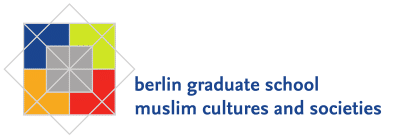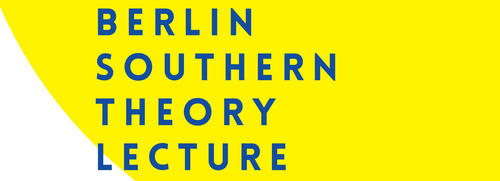Julia Nina Baumann

Doktorandin / PhD candidate (Prof. Dr. Thomas Stodulka)
PhD Project: "Courage, fear, distress, rage, and love in a culture of no-feeling - Ethnographers’ Emotional Experience in Everyday academic worlds" (Cumulative Dissertation)
Scholarship holder by Hans-Böckler-Stiftung
Research Focus
Emotion and Affect
Science and Technology Studies (STS)
Psychological Anthropology
Engaged and Activist Anthropology
Refugee and Migration Studies
Transnationalism and Citizenship and Critical border studies
Public Anthropology
Anthropology of Space and Place
Anthropology of Work
Forschungssupervisionen/Research Supervision – Academic Peer Support
Regional Focus
Academic and Emotional Cultures in Europa and USA,
Migratory Contexts in Middle East (Israel/Palestine) and Germany
Academic Qualifications
Since Sept. 2020 PhD Scholarship Holder at Hans-Böckler-Stiftung (HBS)
Since 2019 PhD-Project „Courage, fear, distress, rage, and love in a culture of no-feeling - Ethnographers’ Emotional Experience in Everyday academic worlds”
2016-2019 Master Social and Cultural Anthropology, Freie Universität Berlin
2011-2014 Bachelor Social and Cultural Anthropology/Ethnology and History, Ludwig-Maximilians-Universität München
Awards
2019 Förderpreis der Rosa-Luxemburg-Stiftung Brandenburg 2019 für „ZwischenWelten in einer verlorenen Zeit“: Raumbezogenes World-making von Geflüchteten in der strukturellen Peripherisierung in Übergangswohnheimen im ländlichen Brandenburg – eine aktivistische Ethnografie (https://brandenburg.rosalux.de/publikation/id/41554/zwischenwelten-in-einer-verlorenen-zeit/)
Memberships
2017- Member, German Anthropological Association
2019- Member, Working Group Public Anthropology, subsection of the German Anthropological Association
2019/2020 – Member, European Network for Psychological Anthropology (ENPA) and it´s Junior Faculty
2020- Member, European Association of Social Anthropologists (EASA)
2021- Member Netzwerk für gute Arbeit in der Wissenschaft (NGAWiss)
2021-2024 Member at Thesis e.V
Teaching
WiSe 22-23: Einführung in die Qualitative Forschung und Methodik, B.A. Politikwissenschaften/B.A. political sciences, Institut für Politikwissenschaften, FU Berlin (2 Lehraufträge)
X-Student-Research Group “Emotion und Universität” II, Berlin University Alliance (BUA), interdisciplinary and inter-university Project (Drittmittelanwerbung; Lehrauftrag)
WiSe 21-22: X-Student-Research Group “Emotion und Universität” I, Berlin University Alliance (BUA), interdisciplinary and inter-university Project (Drittmittelanwerbung; Lehrauftrag)
2017-2019: TA at Institute for Social and Cultural Anthropology, Freie Universität Berlin (BA Seminars, „Anthropology of Religion“ and „Social structure, economy and politics“) (Studentische Mitarbeiterin/Tutorin)
Currently:
PhD Project: „"Courage, fear, distress, rage, and love in a culture of no-feeling - Ethnographers’ Emotional Experience in Everyday academic worlds" (Supervisor: Prof. Thomas Stodulka), founded by Hans-Böckler-Stiftung
In my PhD-project I investigated the emotional experiences of ethnographers in academic work environments. The project is financially supported by the Hans Böckler Foundation (HBS). The following research questions shall be adressed: Which emotions play a role in the everyday life of ethnographers and how are they understood and evaluated by the different actors of ethnographic knowledge production within academic cultures? I will further address the following sub-questions: How and under which (emotional, affective and structural) conditions does ethnographic knowledge emerge? What emotions do ethnographers experience in their work and how do they cope with them? What role does the academic regime of "rationalized" emotion play and how is academic work institutionally structured? What role do experiences of discrimination, psychological conditions and "work-life balances" play? How do institutes, universities and the scientific community influence personal lifestyles and research or emotional experiences and how do researchers influence their "scientific culture"? Are experiences of ethnographers in different contexts/with different backgrounds similar or are they culturally or individually shaped?
The basis of my analysis is ethnographic data, drawing from digitalized ethnographic fieldwork 2019-2022, on the basis of qualitative and quantitative methods in the form of a mixed method design including an online questionnaire, participant observation, narrative and semi-structured interviews (online and in-situ), emotion diaries.
Completed Reserach Projects:
2015-2019 „Gesellschaftliche Teilhabe, place/space-making von Geflüchteten im ländlichen Raum Brandenburgs“, Berlin/Brandenburg.
2013 „Afrikanische Flüchtlinge in Israel“, Tel Aviv, Israel
2013: Research Project „Oral History with Holocaust Survivers/Survivors of KZ Dachau“, in cooperation with Gasteig, München, LMU and Max-Mannheimer-Studienzentrum Dachau, München/Dachau.
Publications
Academia: https://independent.academia.edu/JuliaBaumann8
ReserachGate: https://www.researchgate.net/profile/Julia-Baumann-8
Orcid: https://orcid.org/0000-0002-7161-1699
Monographies
2019
- „‘ZwischenWelten in einer verlorenen Zeit‘. World-making von Geflüchteten in struktureller Peripherisierung – eine aktivistische Ethnografie“. Potsdam: WeltTrends, 2019. - 163 S.; ISBN: 978-3-947802-46-3; URL: http://welttrends.de/zwischenwelten-in-einer-verlorenen-zeit/
Articles/Working Papers
2023
- “Academies of silence – The institutional dealing with mental and emotional distress before and after the pandemic in Germany”, in: 04_Radical Health, intercomverlag, Zürich, 2023 (in press).
2022
- „The ethnographers’ fear to feel – Manoeuvring through an affective community of no-feeling within the academe”, in: Emotions and Society 4(3), 375-394. https://doi.org/10.1332/263169021X16632021773516.
2019
- ‚Captives of a Lost Time’ – Space-Making in the Everyday Life of Refugees in Germany’s Rural Areas“, in: E. Gutzwiller-Helfenfinger et al. (Hg.). Thematic Papers Based on the Conference “Migration, Social Transformation, and Education for Democratic Citizenship”, Duisburg: University of Duisburg-Essen, 43-57.
2014
- „Eindringlinge im Heiligen Land – Vom Leben afrikanischer, nichtjüdischer Flüchtlinge in Israel“, in: Martin Sökefeld und Miriam Ince (Hg.): Forschungsjournal 2013. Studentische Feldforschungen am Institut für Ethnologie. München 2014.
- Israel – Kultur(en) der Migration. Sudanesische Flüchtlinge in und um Tel Aviv, in: E. Dürr et al. (Hg.): Studien aus dem Münchner Institut für Ethnologie, online Publikation: https://www.ethnologie.uni-muenchen.de/forschung/publikationen/studien/9_baumann_israel.pdf
Academic Blog Articles
2023
- “Contesting academic cultures of power abuse”, in Boas Blog Contested Knowledge: https://boasblogs.org/contestedknowledge/contesting-academic-cultures-of-power-abuse/
2021
- ’Feeling Zombie with myself’: Reflexions on the Emotional Self in Ethnographic Research, Feeling the Digital Project: https://www.feelingdigital.org/baumann
- „Engagierte Wissenschaft – ein Aufruf zum ethnografischen Arbeiten als politische Bildung“, Ag Ethnologische Bildung Blog: https://ethnologiebildung.wordpress.com/2021/02/14/engagierte-wissenschaft-ethnografisches-arbeiten-als-politische-bildung/
2020
- „Forschen@home? Das sozial- und kulturanthropologische ‚Home Office‘ in der ‚Corona-Krise‘“, Boas Blogs. Fieldwork Meets Crisis, 14.10.2020:https://boasblogs.org/fieldworkmeetscrisis/forschenhome-das-sozial-und-kulturanthropologische-home-office-in-der-corona-krise/
- “Equality in the shades of Covid-19 in Germany– a critical comment”, in:[anthro]metronom - witnessing psy realms. Witnessing Corona Realms: https://www.anthrometronom.com/corona-realms
2018
- “Salsa y control – attaque de nervios in between any categorization? Anthropological Thoughts on Culture Bound Syndromes and Classificatory Systems like DSM-V”, in:[anthro]metronom - witnessing psy realms
Handreichungen/Policy Papers
2020
- Ab ins Ausland!? Zur Vorbereitung eines internationalen Freiwilligendienstes. Handreichung für Freiwillige und Anbieterorganisationen: http://14km.org/wordpress/wp-content/uploads/2020/02/Final_Handreichung-144km-Freiwilligenarbeit.pdf
Selected Papers, Presentations and Panels at Academic Conferences:
2022
- With Lina Knorr and Andrea Behrends, Lightening-Panel: “What do we hope for a future university? Remodelling/Transforming academia along with feminist, decolonial, anti-racist and engaged approaches”, EASA2022: Transformation, Hope and the Commons, School of History, Anthropology, Philosophy and Politics at Queen's University Belfast, 26-29 July 2022 (hybrid)) à talk: “When Work Makes You Sick – Dealing with Emotional Distress in Highly Hierarchical and Precarious University Structures”
- “Are you crazy (doing this job)?”- Drawing a not so thin line between the academic genius and insanity and suffering of ethnographers manoeuvring through a global pandemic”, “Conference “Pluralizing Global Mental Health: Care, crisis, and critique”, Edinburgh Centre for Medical Anthropology biennial conference (9-10 June 2022), online.
2021
- With Laura Thurmann: Panel „Creating safer spaces: Navigating the Impacts of Sexualized Violence in Academic Settings”, The first Biennial Conference of the European Network for Psychological Anthropology (ENPA) „Mind Embedded and Embodied – Futures of Psychological Anthropology“, 1–3 June 2021, online.
- With Thomas Stodulka and Claudia Tynne Pollmann: Panel 2: Subordinate Feelings. Encountering Health Regimes in Psychiatry and Academia, Radical Health. Doing Medicine, Health Care, and Anthropology of the Good, Freie Universität Berlin, 24.-27. June 2021, online à Talk: The Fear to Feel, the Shame to Share: (Un)Doing researchers Mental Well-being in the Eclipse of Neoliberal Academic Emotion Regimes and the High Values of Peer Support within an ´academic activism`.
- „Das verbotene Gefühl – Ressentiments von Wissenschaftler*innen in akademischen Arbeitswelten zwischen Resignation und Aufbegehren“, Workshop “Ressentiments im Feld? Soziale Gefühle als Herausforderung für die qualitative Sozialforschung“, Institut für Politische Wissenschaften und Soziologie, Bonn, 21. – 22. Mai 2021, online.
2019
- Tagung für junge Wissenschaftlerinnen und Wissenschaftler „Einwanderung und Einwanderungspolitik im internationalen Vergleich“, 2.-3.05.19, Münster: „Being “captive of a lost time” – Dealing with mechanisms of (spatial) peripheralization in refugees’ everyday lives in Brandenburg’s rural areas“ (Panel: „Zusammenleben in der Einwanderungsgesellschaft“).
- 16th annual IMISCOE conference, “Understanding International Migration in the 21st Century: Conceptual and Methodological Approaches”, 26.-28.06.19, 2019), Malmö: “´Captives of a lost time´ – mechanisms of peripheralization and resistance in refugees’ everyday lives in rural areas” (Panel: Post-2015 refugees in Germany: “Culture of welcome”, solidarity, or exclusion?, Miriam Schader/Zeynep Yanasmayan).
- Conference Deutsche Gesellschaft für Sozial- und Kulturanthropologie (DGSKA) 2019, „Das Ende der Aushandlungen?“, 29. 09. - 2. 10.19, Konstanz: „Coping with Reality – towards a politicized Anthropology/Die Bewältigung der Realität – der Weg zu einer politisierten Anthropologie“ (Panel: "Notwendige Positionen und politische Praxis in der Ethnologie", Magnus Treiber).
2018
- Zweite Konferenz des Netzwerks Fluchtforschung, 4.-6. Oktober 2018, Eichstätt: „´Engaged Anthropology´ als methodologische Selbstverortungen einer politischen Anthropologie – eine Methodenkritik mit Beispielen aus der Praxis“ (Konferenz Netzwerk Flüchtlingsforschung, Panel 4.2. Die Lebenssituationen und Perspektiven nach Deutschland geflüchteter Menschen erforschen: Ethische und methodische Überlegungen, Judith Vey/Madeleine Sauer).
- INZENTIM & EARLI-SIG 13 CONFERENCE 2018: “Migration, Social Transformation, and Education for Democratic Citizenship“, 27.-29.09.18, Essen: “From an excessive Desire for Integration to the Frustration of Desires: The lack of Possibilities for a refugee ́s social Embeddedness in Brandenburg ́s (Germany) rural Areas – an Ethnography (Panel: Pitfalls and Challenges of Integration).
Audiovisual Productions
- „Mensch. Human“, Short-Movie, Deutschland 2016: https://www.youtube.com/watch?v=f-KMrJ0u6cQ
- „Auf der Suche nach Integration – Searching for Integration“, Deutschland, 2019.
- Mit Amrei Gerdes „Zeitzeugengespräch mit Abba Naor“, Deutschland 2013: https://www.youtube.com/watch?v=LVvUYXS3Q3Q
- Photo Voice Exhibition „Alltag in Bildern“: http://alltag-in-bildern.de/


